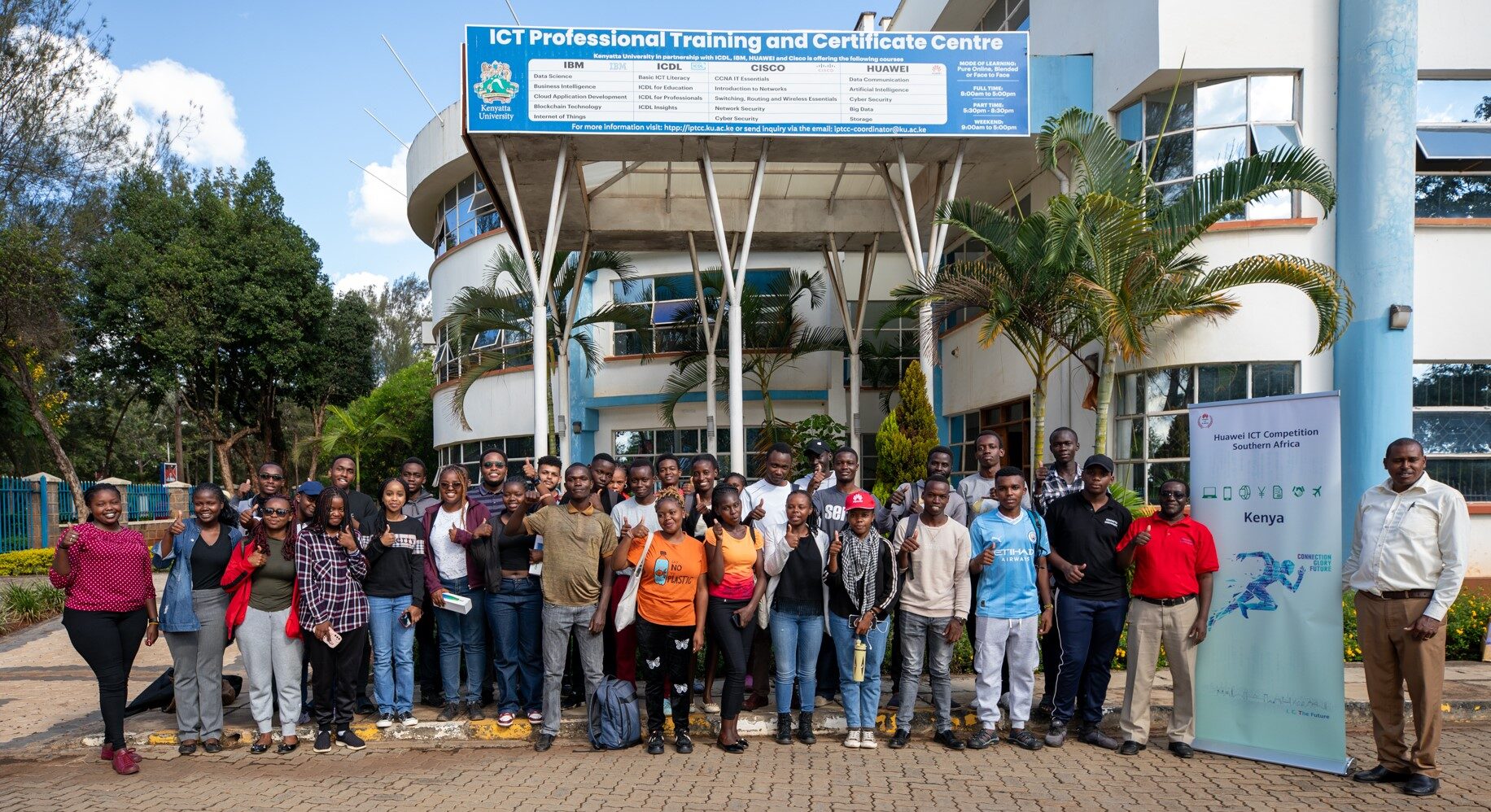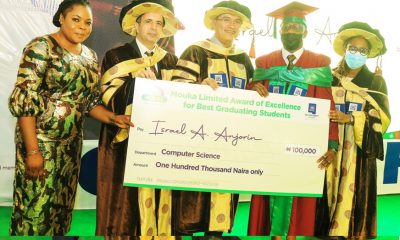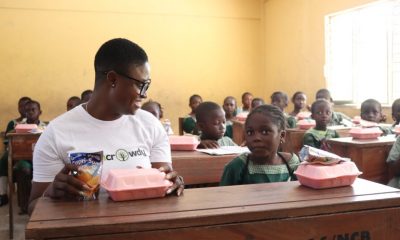Corporate Citizenship
U.S. firms spend N1.5bn on CSR in Nigeria in 2017 – Official

L-R: Brent Omdahl, U.S Commercial Counsellor, Otunba Oluwatoyin Akomolafe, President, Nigerian-American Chamber of Commerce (NACC), Dr Lazarus Angbazo, Chief Executive Officer, General Electric (GE) Nigeria, Russell Brooks, Public Affairs Officer, U.S Consulate, and Ms Joyce Akpata, Director-General, Nigerian-American Chamber of Commerce (NACC), .
Dr Lazarus Angbazo, President, American Business Council (ABC), on Wednesday said that American companies spent about N1.5 billion on Corporate Social Responsibility (CSR) projects in Nigeria in 2017.
Angbazo, who is also the Chief Executive Officer, General Electric Nigeria, spoke in Lagos at the November Edition of Breakfast Meeting of the Nigerian-American Chamber of Commerce (NACC).
Theme of the meeting was: “Beyond Business: The Social Impact of American Businesses in Nigeria.”
“ U.S companies spent N1.5 billion on Corporate Social Responsibility (CSR) from N217 million spent in 2016.
“The focus areas are Education, Health, Infrastructure and Social intervention, which are key area of focus for U.S companies in Nigeria,” he said.
According to him, the notion of social impact goes beyond philanthropy and volunteerism, saying that value chain development through SMEs is the way to lift a country economically.
“Asides providing direct employment in Nigeria, we are actively developing SMEs to be part of our supply chain, because SMEs cannot grow without the experience, capacity and off take support of global companies.
“We get to spread inclusivity in the economy because local companies will hire from their local communities and they will specialise in that area; that is the way to think about long term sustainable industrialisation,” he said.
Angbazo said that over N1.6 billion was expended on training and development in 2017 from N340 million in 2016, which shows U.S companies commitment in capacity building to correct the deficit in Nigeria’s labour skills.
He said that U.S companies created about 11, 200 indirect jobs and over 9, 000 full time jobs in 2017 toward reducing Nigeria’s unemployment rate.
Also, Brent Omdahl, a U.S Commercial Counsellor, said that the advice of U.S Government to potential and existing companies to Nigeria and Africa was to utilise the solution-based approach in their investment strategy.
Omdahl said that investment should not be profit centered alone, but on impacting the socioeconomic landscape of the host economies through value addition, job creation, technology transfer and skills upgrade.
Mr Adil Farhat, the Managing Director, Procter & Gamble, said that the company had been in Nigeria for over 25 years and working assiduously to ensure that its various brands have positive socioeconomic impact on all sectors of its operation.
Farhat said that P&G trained over 100 SME operators in business development, products expansion and profit enhancement strategy to boost SME development.
Also, Mr Innocent Chukwuma, the Director, West Africa, Ford Foundation, said that the foundation does catalytic investment in areas that large organisations would not venture into.
“Our grant support of 150,000 dollars to drive social impact and enhance productivity of Made in Nigeria products among Aba leather manufacturers made Bank of Industry (BoI) to commit N400 million to support the project,” he said.
Chukwuma said that the foundation would embark on one billion dollar mission support projects to provide finance at below one per cent to entrepreneurs in the areas of affordable housing and renewable energy.
Earlier, Otunba Oluwatoyin Akomolafe, President, Nigerian-American Chamber of Commerce (NACC), said that it was becoming clear that the traditional ways of solving problems through government alone was not effective.
He said that global companies were challenging the notion of profit first, saying that while profit making was good, the social impact was more beneficial to transform citizens, communities and socio-economic development. (NAN)
NGOs - SDGs
Climate Launchpad: Beyond competition, a catalyst for change

Climate Launchpad Competition 2023 Image.
Despite the success of The Climate Launchpad Competition 2023, Climate Launchpad through the support of Climate-KIC and Irish Aid provided additional support to the participants of the competition through the Post-Climate Launchpad Accelerator. Given that the majority of the participants are early-stage businesses, capacity building is a necessity. The post-competition support is divided into 2, The masterclasses that are being handled by the Climate Launchpad Global team which has participants from over 7 African countries, and The national capacity-building session handled by the Climate LaunchPad Nigeria Team.
The Masterclass session featured a business-changing session on important modules like funding options & Instruments, Gender and Climate, Communications and Storytelling, Climate Impact etc. The national capacity-building session focuses on marketing strategies, practical and optimal use of social media and analytics. As an early-stage business in Nigeria, one of the major challenges you face is reaching and communicating with your potential customers at the market entry stage. The modules were selected after feedback from alumni of the competition.
The modules have been proven to be useful as we have started seeing the tractions of the businesses on social media. Overall, the post-competition support program has been no short of helpful to the businesses. We had 5 active participants from Nigeria who have expressed their gratitude for the post-competition support. Each of them will be given a grant of EUR200 to facilitate their marketing and social media usage.
The National Lead for Climate Launchpad Nigeria, Oluwatosin Ajide affirms the importance of the accelerator program “If we have more competition dedicating their support beyond just the pitching like Climate Launchpad does, We would have more green businesses with solid foundations”. He also thanked the Climate Launchpad central team and the sponsors the Climate-KIC and Irish Aid for their constant support in building the green ecosystem in Nigeria.
NGOs - SDGs
GEANCO Foundation and Archewell Foundation Announce Mental Health Initiative for Nigerian Youth

The GEANCO Foundation and The Archewell Foundation has announced an expansion of their partnership, currently serving girls and young women across Nigeria with menstrual health products and education, to include mental health resources and training for young men and women.
This expanded partnership kicked off with its inaugural Mental Health Summit, taking place over two days and serving nearly 200 students in Abuja, Nigeria’s capital. Prince Harry and Meghan, The Duke and Duchess of Sussex and co-Founders of The Archewell Foundation opened the Summit by delivering inspiring remarks to the young people in attendance.
GEANCO intends to hold summits throughout the country over the next year, providing teenage girls and boys with the information, skills, and coping mechanisms necessary to flourish mentally.
“Youth in Nigeria are critically underserved in terms of mental and menstrual health”, said GEANCO’s CEO Afam Onyema. “I am deeply grateful to The Duke and Duchess for partnering with us to address this crisis and provide this vulnerable but inspiring young generation with what they need to thrive in body, mind and spirit.”
A strong stigma also surrounds mental health in Nigeria, which is critically neglected in the country. The World Health Organization estimates that only 3% of the federal government’s health budget goes to mental health, and while up to one-third of Nigerians have mental health challenges, fewer than 500 mental health professionals serve the country’s 200 million plus citizens. Nigeria’s teens and youth in particular have little to no access to mental health support.
The expanded partnership will also continue the ongoing work to support young girls with menstrual health products and education. An estimated 37 million women and girls in Nigeria experience “period poverty”, meaning they are unable to access or afford menstrual products like pads, tampons, and underwear. Because of the material difficulties caused by period poverty and the deep stigma surrounding menstruation, millions of girls in the country miss school every month, crippling their educational advancement and deepening Nigeria’s already vast levels of gender inequality.
GEANCO Foundation provides critical health care and education services in Nigeria. Its David Oyelowo Leadership Scholarship provides full tuition, medical care, and social and emotional support to young female victims of terrorism and gender inequality in Nigeria.
Corporate Citizenship
Huawei 2024 ‘Seed for Future’ Programme Kicks off in Kenyan Tertiary Institutions

Huawei Kenya has rolled out its “Seed for Future” program for the year 2024 in collaboration with leading universities and TVET institutions in Kenya. The initiative, which is Huawei’s globally-recognized Corporate Social Responsibility (CSR) flagship program, aims to cultivate talent and foster innovation in the field of ICT to ensure a sustainable future for technological advancement through training.
The training sessions are designed to bridge the gap between academic learning and real-world industry demands, equipping students with the expertise needed to thrive in the digital age.
Universities and colleges earmarked to benefit from this year’s Huawei “Seed for Future” program Include University of Nairobi, United States International University (USIU), Strathmore University, Kenyatta University, Moi University, Egerton University, Jomo Kenyatta University of Agriculture and Technology (JKUAT), Mount Kenya University, Catholic University of East Africa, Technical University of Kenya, Muranga University, Kabete National Polytechnic, Nairobi Technical Training Institute, and Nyandarua Technical Training Institute.
Commenting on the program, Huawei Kenya Media Director, Public Affairs and Communication Department Ms. Khadija Mohammed Ahmed said the Seed for Future” program seeks to develop local talent, share knowledge, increase ICT sector awareness & enthusiasm, & foster digital community building.
“We are thrilled to kick off the 2024 ‘Seed for Future’ program, which represents Huawei’s unwavering commitment to nurturing the next generation of ICT professionals. By collaborating with these top universities and colleges, we aim to empower Kenyan students with the necessary tools and insights to drive innovation and shape the future of technology,” Ms. Ahmed said.
Now in its 10th year in Kenya, the Seeds for the Future program seeks to rope-in at least 1000 participants.
The registration exercise for this year’s program will run until April 30th, 2024. To register, the participating student will need a resume, a transcript that proofs academic records, a cover letter and/or a 3-minute personal video which reflects objective to participate for learning, which should be done through the Registration Link
This year’s program offers students the chance to undergo a one-week digital training course in South Africa, as well as additional training opportunities.
In addition to the South Africa trip, selected students will have a one-week training on Huawei certification courses and another one-week local training in Nairobi and an opportunity to engage in global competition termed as the ‘Tech4Good Competition, international learning and cultural exchange.
In 2023, more than 2600 students from 102 countries participated in the program.




















